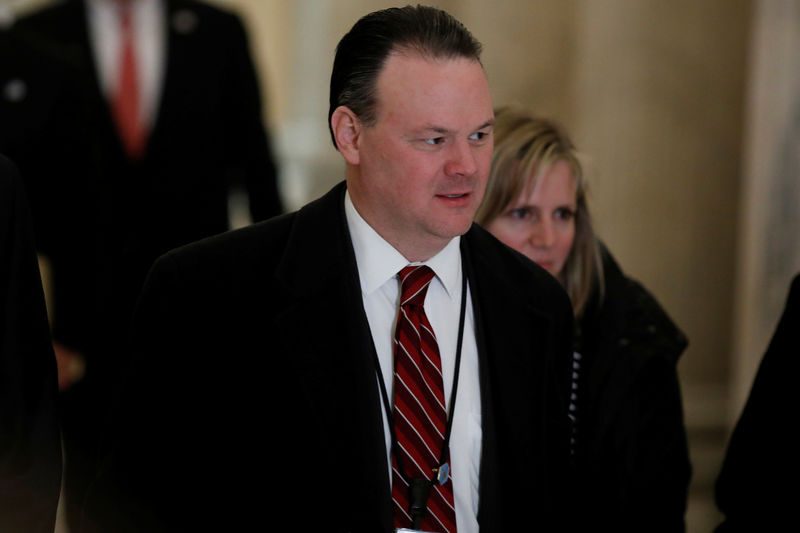WASHINGTON (Reuters) - President Donald Trump has ordered two former White House aides not to testify at a House of Representatives committee hearing on Tuesday as the panel considers whether to recommend impeaching Trump.
Former White House Deputy Chief of Staff Rick Dearborn and former White House Staff Secretary Rob Porter were subpoenaed by the House Judiciary Committee to appear at the hearing on possible obstruction of justice by Trump.
"The President has directed Mr. Dearborn and Mr. Porter not to appear at the hearing," White House Counsel Pat Cipollone said in a letter to the committee's chairman, Democrat Jerrold Nadler.
Cipollone said the Justice Department had determined that Dearborn and Porter "are absolutely immune from compelled congressional testimony with respect to matters related to their service as senior advisers to the President."
Cipollone said former Trump campaign aide Corey Lewandowski, who was also subpoenaed to appear at Tuesday's hearing, could testify but not about conversations with Trump after he became president or with his senior advisers.
Nadler denounced the White House move as a "shocking and dangerous assertion of executive privilege and absolute immunity."
"If he were to prevail in this cover-up while the Judiciary Committee is considering whether to recommend articles of impeachment, he would upend the separation of powers as envisioned by our founders," Nadler said in a statement, referring to Trump.
Democrats want to question the three men about an episode described by former Special Counsel Robert Mueller in which Trump allegedly tried to pressure then-Attorney General Jeff Sessions to redirect the Russia probe away from his 2016 presidential campaign.
The episode is among a number of incidents contained in Mueller's 448-page report on Russian meddling in the 2016 election campaign that Democrats view as evidence Trump obstructed justice.
Last week, the Democratic-led House panel adopted a resolution allowing it to designate hearings as impeachment proceedings, subject witnesses to more aggressive questioning and quicken the pace of its investigation of Trump.
Democrats aim to decide by the end of the year whether to recommend articles of impeachment against Trump to the full House. If approved by the chamber, the Republican-controlled Senate would be left to hold a trial and consider the president's ouster.
